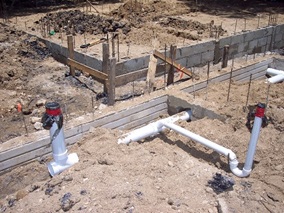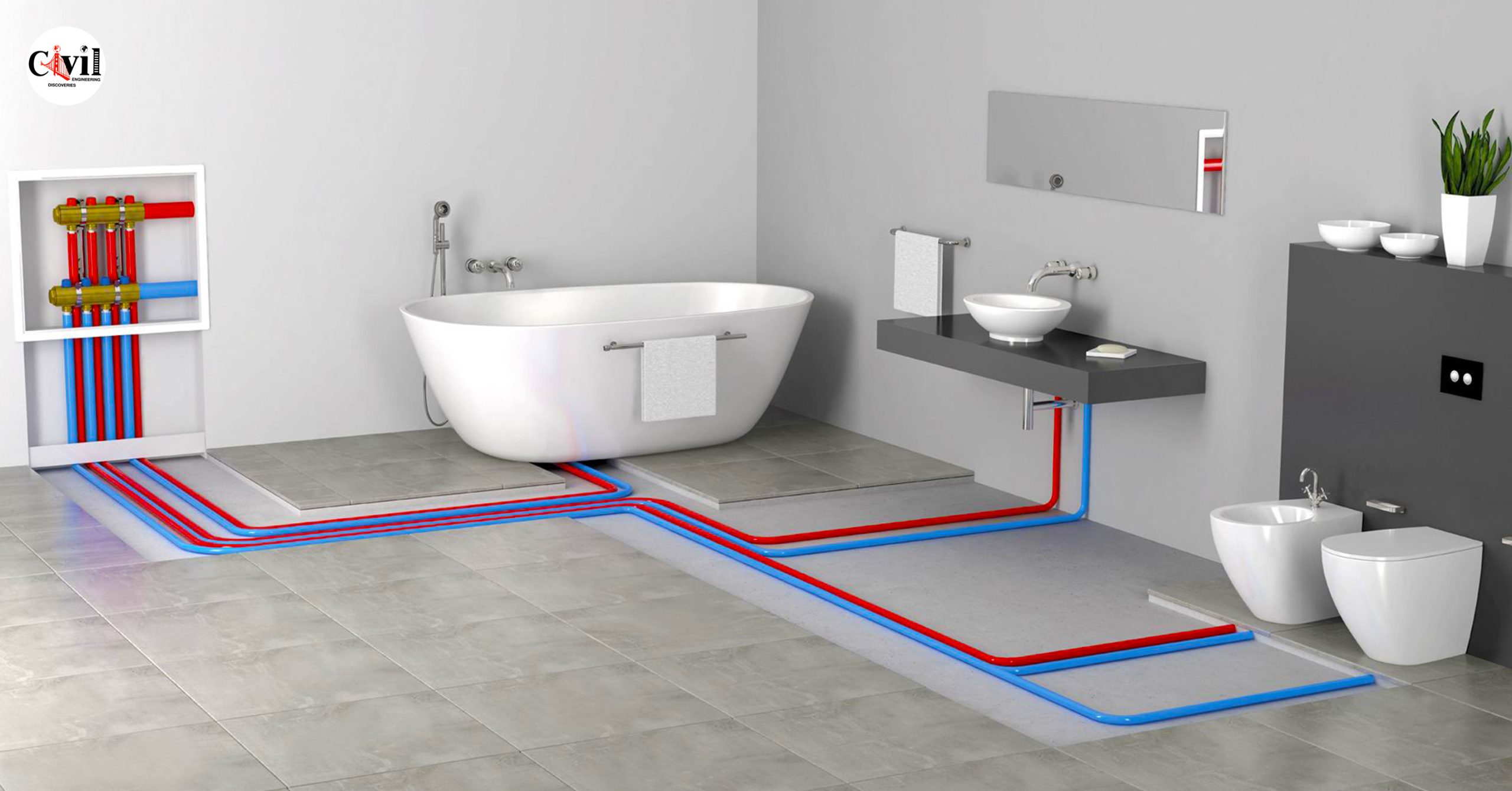The Basics to Your Property's Plumbing System Anatomy
The Basics to Your Property's Plumbing System Anatomy
Blog Article
Everyone may have their own individual idea with regards to The Inner Workings of Your Home's Plumbing.

Recognizing exactly how your home's plumbing system works is important for every house owner. From supplying tidy water for alcohol consumption, food preparation, and bathing to securely getting rid of wastewater, a properly maintained pipes system is crucial for your household's health and wellness and convenience. In this thorough overview, we'll check out the complex network that composes your home's pipes and deal ideas on upkeep, upgrades, and managing usual problems.
Introduction
Your home's plumbing system is more than just a network of pipes; it's a complicated system that ensures you have accessibility to tidy water and reliable wastewater removal. Knowing its components and how they work together can help you protect against pricey fixings and make certain every little thing runs efficiently.
Standard Parts of a Pipes System
Pipes and Tubing
At the heart of your plumbing system are the pipes and tubes that bring water throughout your home. These can be made from different materials such as copper, PVC, or PEX, each with its advantages in regards to sturdiness and cost-effectiveness.
Components: Sinks, Toilets, Showers, etc.
Fixtures like sinks, commodes, showers, and tubs are where water is used in your house. Comprehending how these components link to the pipes system assists in diagnosing issues and planning upgrades.
Shutoffs and Shut-off Factors
Shutoffs regulate the flow of water in your plumbing system. Shut-off shutoffs are critical throughout emergencies or when you need to make fixings, allowing you to separate parts of the system without interfering with water circulation to the whole home.
Water System
Key Water Line
The main water line links your home to the community water or a personal well. It's where water enters your home and is distributed to numerous components.
Water Meter and Pressure Regulatory Authority
The water meter procedures your water usage, while a stress regulator makes certain that water flows at a risk-free pressure throughout your home's pipes system, protecting against damage to pipelines and fixtures.
Cold Water vs. Warm water Lines
Understanding the distinction in between cold water lines, which supply water straight from the main, and hot water lines, which lug heated water from the hot water heater, helps in fixing and preparing for upgrades.
Water drainage System
Drain Pipes and Traps
Drain pipelines lug wastewater far from sinks, showers, and toilets to the sewage system or septic tank. Traps avoid drain gases from entering your home and additionally trap particles that can cause blockages.
Air flow Pipes
Ventilation pipes enable air into the drain system, protecting against suction that could slow drainage and trigger catches to empty. Proper air flow is crucial for maintaining the stability of your pipes system.
Importance of Proper Drain
Ensuring proper water drainage avoids back-ups and water damage. On a regular basis cleaning drains and keeping traps can stop pricey repair work and prolong the life of your pipes system.
Water Heating System
Types of Water Heaters
Hot water heater can be tankless or standard tank-style. Tankless heaters heat water on demand, while containers store heated water for instant usage.
Upgrading Your Plumbing System
Factors for Updating
Upgrading to water-efficient fixtures or replacing old pipelines can boost water quality, decrease water costs, and boost the value of your home.
Modern Plumbing Technologies and Their Advantages
Discover technologies like wise leakage detectors, water-saving commodes, and energy-efficient hot water heater that can save money and decrease ecological influence.
Price Considerations and ROI
Calculate the ahead of time expenses versus long-term cost savings when taking into consideration plumbing upgrades. Many upgrades spend for themselves through reduced energy expenses and fewer fixings.
Just How Water Heaters Link to the Plumbing System
Recognizing how hot water heater link to both the cold water supply and hot water circulation lines assists in diagnosing problems like insufficient warm water or leaks.
Maintenance Tips for Water Heaters
Consistently flushing your water heater to get rid of debris, checking the temperature level settings, and evaluating for leaks can expand its life expectancy and boost energy performance.
Common Pipes Problems
Leaks and Their Reasons
Leaks can take place due to maturing pipes, loosened fittings, or high water stress. Attending to leakages quickly prevents water damages and mold and mildew development.
Blockages and Clogs
Clogs in drains pipes and toilets are commonly caused by flushing non-flushable things or an accumulation of grease and hair. Using drain displays and bearing in mind what decreases your drains can avoid clogs.
Indications of Pipes Troubles to Look For
Low water pressure, slow-moving drains pipes, foul odors, or uncommonly high water bills are signs of possible pipes problems that should be resolved immediately.
Plumbing Maintenance Tips
Normal Assessments and Checks
Set up yearly pipes evaluations to catch concerns early. Search for signs of leakages, rust, or mineral build-up in faucets and showerheads.
DIY Upkeep Tasks
Simple tasks like cleansing tap aerators, checking for toilet leakages using color tablets, or protecting subjected pipelines in cold climates can avoid major plumbing problems.
When to Call a Specialist Plumbing
Know when a pipes concern requires specialist proficiency. Attempting intricate fixings without proper understanding can bring about more damage and greater repair costs.
Tips for Decreasing Water Use
Simple practices like taking care of leaks quickly, taking shorter showers, and running full tons of washing and meals can save water and lower your utility expenses.
Eco-Friendly Pipes Options
Take into consideration lasting pipes products like bamboo for floor covering, which is durable and eco-friendly, or recycled glass for kitchen counters.
Emergency situation Readiness
Actions to Take Throughout a Pipes Emergency situation
Know where your shut-off shutoffs lie and exactly how to turn off the water supply in case of a burst pipe or major leak.
Importance of Having Emergency Situation Calls Convenient
Maintain get in touch with details for neighborhood plumbings or emergency services readily offered for quick response throughout a plumbing crisis.
Environmental Impact and Conservation
Water-Saving Fixtures and Home Appliances
Setting up low-flow faucets, showerheads, and toilets can considerably decrease water usage without sacrificing performance.
DIY Emergency Fixes (When Relevant).
Short-term fixes like utilizing air duct tape to spot a dripping pipeline or putting a pail under a trickling tap can reduce damage till a professional plumbing arrives.
Conclusion.
Understanding the makeup of your home's plumbing system encourages you to keep it properly, conserving time and money on repairs. By following normal upkeep routines and staying informed about contemporary plumbing modern technologies, you can guarantee your plumbing system operates effectively for years to find.
The Anatomy of Your Home s Plumbing System
Understanding the anatomy of your home s plumbing system is essential for any homeowner. It not only helps in identifying potential issues but also facilitates effective communication with professionals when repairs or upgrades are needed. Your home s plumbing system is more than just pipes and faucets; it s a complex network that ensures the efficient and hygienic flow of water in and out of your house. In this blog, we ll dissect the crucial components of your home s plumbing system. For those in Antelope Valley, Brock Plumbing is your trusted partner for all your plumbing needs, ensuring your system functions smoothly and efficiently.
Water Supply System
Main Water Line: This is where your home s plumbing system begins. The main water line connects your home to the public water supply or a private well. Pipes and Shut-off Valves: Pipes distribute water throughout your home. Shut-off valves are crucial for controlling the flow of water and making repairs without shutting off the entire system. Drainage System
Drain Pipes: These pipes carry waste and water away from sinks, toilets, and showers. Vents: Vents allow sewer gases to escape and help maintain proper pressure in the drainage pipes, ensuring efficient flow of wastewater. Traps: Every fixture has a trap, a U-shaped pipe that holds water and prevents sewer gases from entering your home. The most common is the P-trap under sinks. Fixtures and Appliances
Fixtures and appliances are the most interacted with parts of your plumbing system. They include sinks, toilets, showers, dishwashers, and washing machines. Each fixture and appliance has its own supply and drainage connection, ensuring they receive clean water and can dispose of wastewater effectively.
Water Heating System
Your water heater is a crucial component, providing hot water to various fixtures and appliances in your home. It can be tank-based or tankless, with each type having its own set of advantages and maintenance requirements. Regular maintenance is essential to ensure efficient operation and extend the lifespan of the unit.
Sump Pump
In areas prone to flooding or with high water tables, a sump pump is an essential part of the plumbing system. It s installed in the lowest part of your basement or crawlspace and pumps out water that accumulates, preventing flooding and protecting your home from water damage.
Septic System
Homes that are not connected to a municipal sewer system have a septic system and an underground wastewater treatment structure. Understanding how to maintain your septic system is crucial to prevent backups, odors, and early system failure.
Conclusion
Your home s plumbing system is a complex and essential network, ensuring the efficient and hygienic flow of water in and out of your property. Understanding its key components helps in maintaining it properly and identifying issues before they escalate into major problems. For residents in Antelope Valley, Brock Plumbing is dedicated to providing top-notch services, ensuring that every part of your plumbing system is in perfect working order. Trust our team of professionals to handle all your plumbing needs, ensuring your home remains comfortable, safe, and well-maintained.
https://brockplumbinganddrains.com/blog/the-anatomy-of-your-homes-plumbing-system/

I have been very drawn to Understanding Your Home's Plumbing Anatomy and I'm hoping you enjoyed reading my blog post. Sharing is good. You won't know, you will be doing someone a favor. Thank you so much for taking the time to read it.
Click Here Report this page